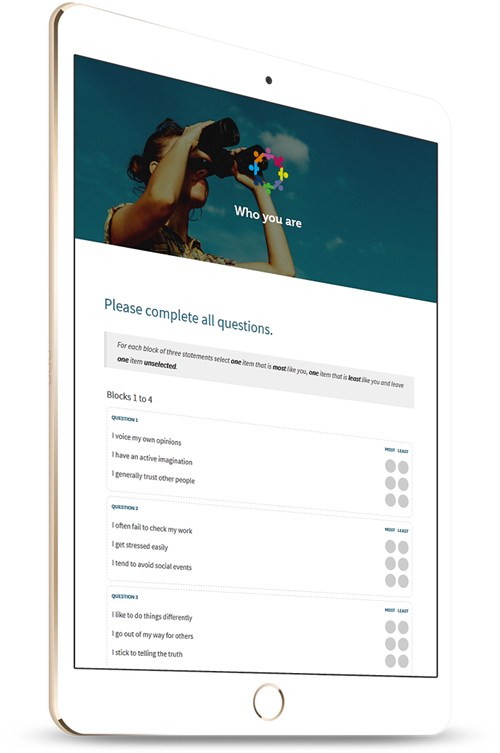Reliability and validity are terms frequently used in any conversation that involves the selection and use of "psychometric tests", by which we mean personality questionnaires, ability tests, etc. In our experience the assessment industry does a very fine job of blinding users with science, resulting in string of numbers and technical jargon that means little, even to Level A and B trained users. This page is intended to clarify the terms and provide some insight into the research and development process used in the creation of our personality questionnaires.
What do we Mean by "Reliability & Validity"?
The assessment industry use a range of complex methods to explain both of these concepts (and even more complex statistics), but in simple terms it is important to understand if the questionnaires are working. As an example:
Say you use a set of bathroom scales to weigh yourself. Every day you get on and they say you weigh 65 kilos; it never changes always the same 65 kilo. We would say that this is a reliable measuring tool. In other words it consistently measures what it should measure.
However, if you actually weigh 80 kilos then the scales, despite being reliable, do not provide you with an accurate (valid) result.
A set of scales needs to be consistent (reliable) and provide an accurate (valid) result. The same is true of a personality questionnaire, ability test and any other form of assessment you might use.
You will notice that there are 16 scales (descriptions of personality) in the report. We realise that you may be more familiar with questionnaires providing more detailed scale breakdowns, it is important to note that composite scores (for example The Big Five profile we provide) have been proven to have higher validity.
Putting our Personality Questionnaires into Context
They have been developed by a group of former SHL test developers (they have also developed tests for other major test publishers and organisations since leaving SHL). The same best practice approaches have been employed in the creation of this questionnaire as any other on the market. The reliability and validity studies are showing that the questionnaire is delivering results that are as good as any on the market.
Availability of Reliability & Validity Data
We have technical manuals that provide full details on the questionnaire's reliability and the validity of the Big 5 model around which the questionnaire is constructed. Please contact us for a copy. As with any validity data (from all test publishers), validation studies in technical manuals demonstrate that the questionnaire has been proven to work in lots of different situations which is great, but this does not automatically mean that any questionnaire will provide you with a valid (accurate) result in your context. We are absolutely committed to providing a fantastic service supported by scientific evidence to support the application of our questionnaires in your organisation. To back these words with action, we would be delighted to run a free validation study for you to give you the confidence that the questionnaire is accurate in your environment.
Even if you think a free validation study sounds like a good idea we realise that you might be concerned about the amount of time and work involved - it really isn't that painful, please contact us to talk through the details.





